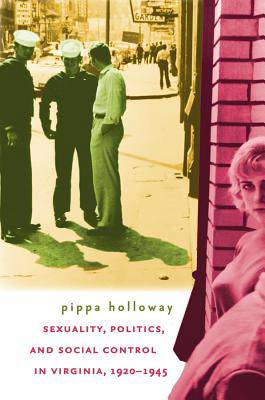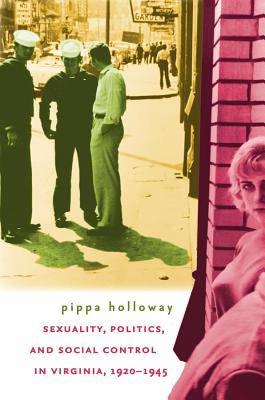
- Afhalen na 1 uur in een winkel met voorraad
- Gratis thuislevering in België vanaf € 30
- Ruim aanbod met 7 miljoen producten
- Afhalen na 1 uur in een winkel met voorraad
- Gratis thuislevering in België vanaf € 30
- Ruim aanbod met 7 miljoen producten
Zoeken
€ 46,45
+ 92 punten
Omschrijving
In the first half of the twentieth century, white elites who dominated Virginia politics sought to increase state control over African Americans and lower-class whites, whom they saw as oversexed and lacking sexual self-restraint. In order to reaffirm the existing political and social order, white politicians legalized eugenic sterilization, increased state efforts to control venereal disease and prostitution, cracked down on interracial marriage, and enacted statewide movie censorship. Providing a detailed picture of the interaction of sexuality, politics, and public policy, Pippa Holloway explores how these measures were passed and enforced.
The white elites who sought to expand government's role in regulating sexual behavior had, like most southerners, a tradition of favoring small government, so to justify these new policies, they couched their argument in economic terms: a modern, progressive government could provide optimum conditions for business growth by maintaining a stable social order and a healthy, docile workforce. Holloway's analysis demonstrates that the cultural context that characterized certain populations as sexually dangerous worked in tandem with the political context that denied them the right to vote. This perspective on sexual regulation and the state in Virginia offers further insight into why white elite rule mattered in the development of southern governments.
The white elites who sought to expand government's role in regulating sexual behavior had, like most southerners, a tradition of favoring small government, so to justify these new policies, they couched their argument in economic terms: a modern, progressive government could provide optimum conditions for business growth by maintaining a stable social order and a healthy, docile workforce. Holloway's analysis demonstrates that the cultural context that characterized certain populations as sexually dangerous worked in tandem with the political context that denied them the right to vote. This perspective on sexual regulation and the state in Virginia offers further insight into why white elite rule mattered in the development of southern governments.
Specificaties
Betrokkenen
- Auteur(s):
- Uitgeverij:
Inhoud
- Aantal bladzijden:
- 272
- Taal:
- Engels
Eigenschappen
- Productcode (EAN):
- 9780807857649
- Verschijningsdatum:
- 9/10/2006
- Uitvoering:
- Paperback
- Formaat:
- Trade paperback (VS)
- Afmetingen:
- 157 mm x 237 mm
- Gewicht:
- 399 g

Alleen bij Standaard Boekhandel
+ 92 punten op je klantenkaart van Standaard Boekhandel
Beoordelingen
We publiceren alleen reviews die voldoen aan de voorwaarden voor reviews. Bekijk onze voorwaarden voor reviews.











